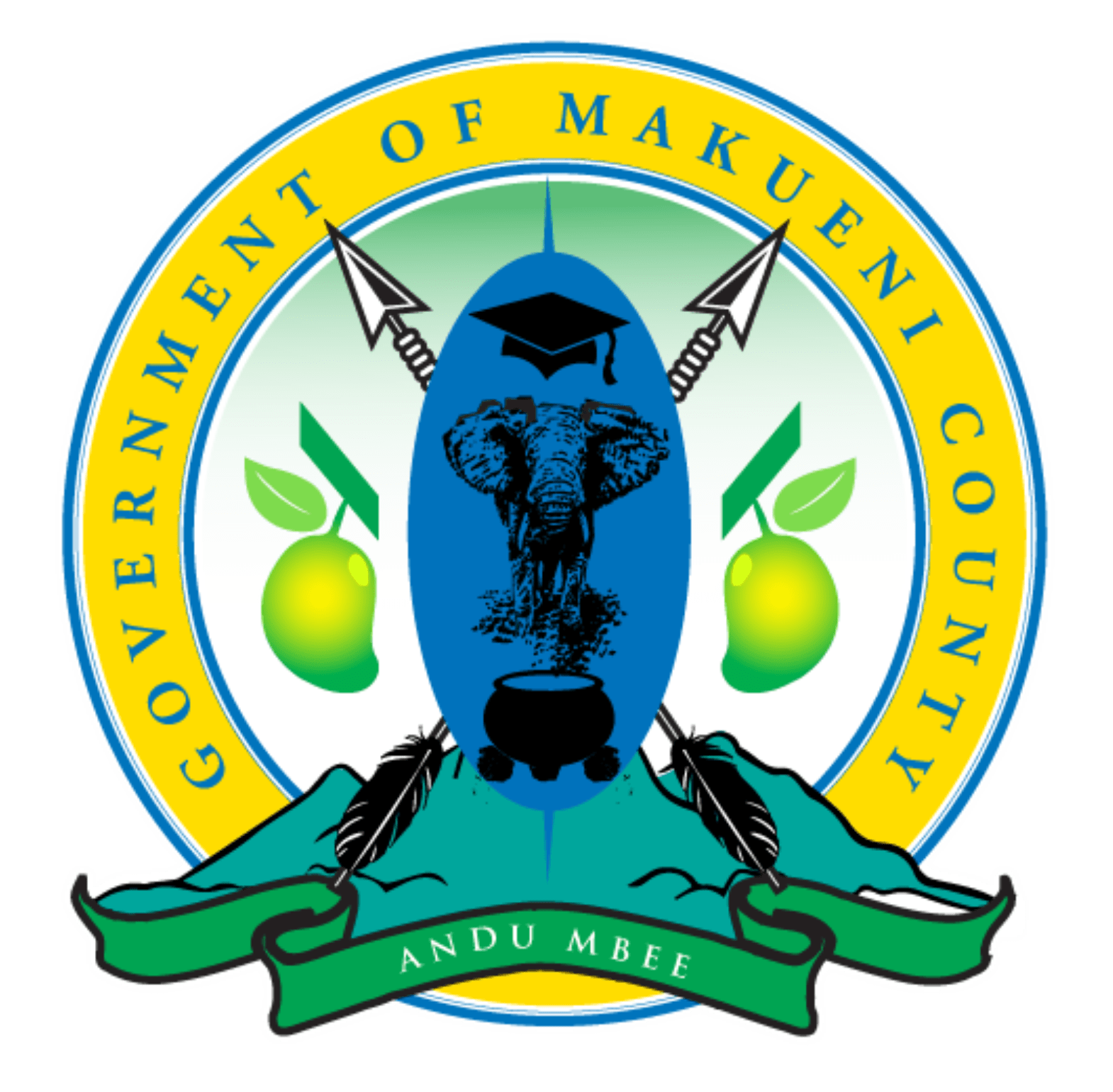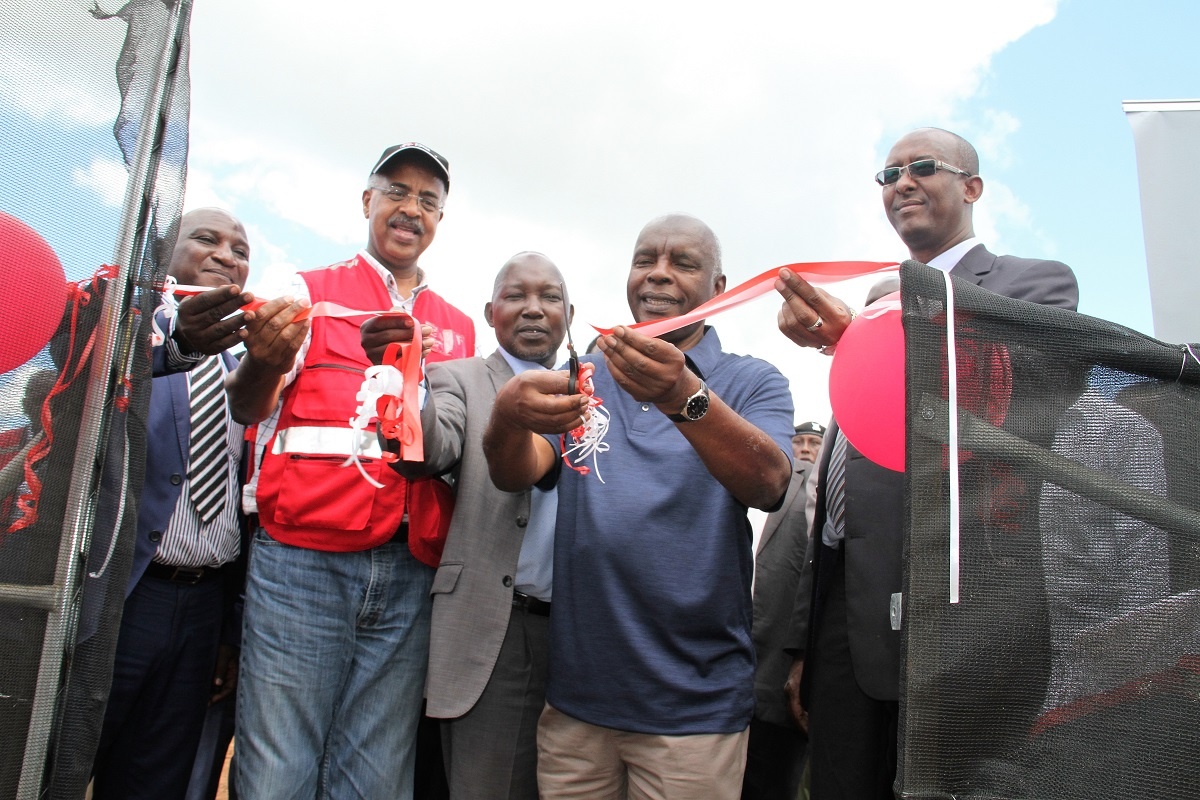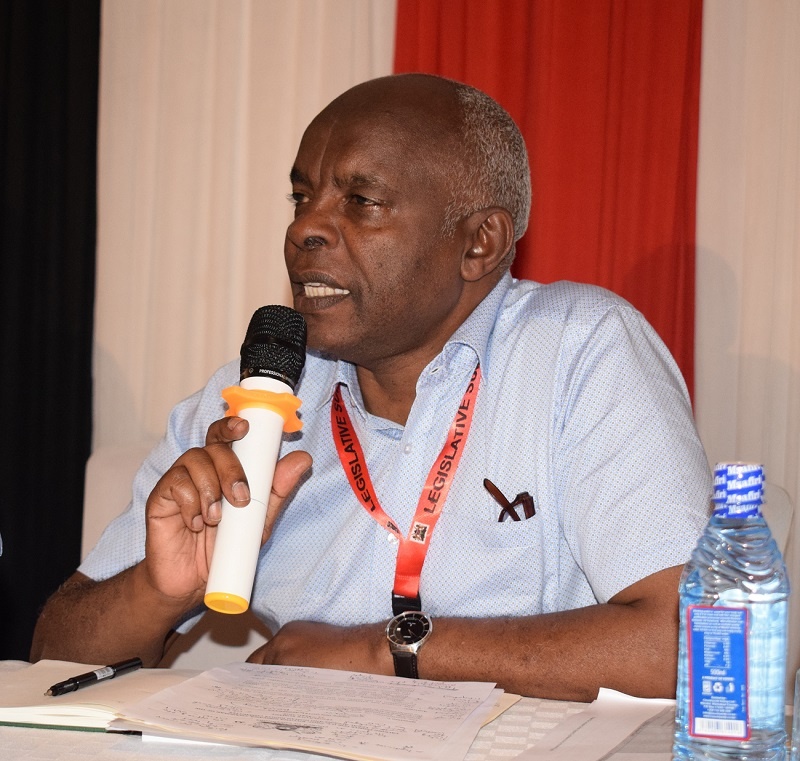Clean Water for Wote
Wote town is now almost water secure after the commissioning of two water treatment plants for the town, one constructed by the Government of Makueni County and the other by the Kenya Red Cross Society (KRCS).
The two plants, commissioned on Wednesday by Governor Kivutha Kibwana and Kenya Red Cross Society Secretary General Abbas Gullet, have an output capacity of 90 cubic meters of water per hour, but with an installed pumping capacity of 70 cubic meters per hour.
Water executive committee member Robert Kisyula has said the installation will be able to pump for 20 hours a day, guaranteeing Wote residents 1,400 cubic meters of clean water.
With Mwaani bore hole producing 400 cubic meters per day, the total water supply to Wote town is currently 1,800 cubic meters, he says.
Mr. Gullet has announced that the Kenya Red Cross Society will donate its plant to the county government even though it was supposed to be a temporary measure to address the water crisis which hit Wote town after breaching of Kamunyolo dam and collapse of the Kaiti sump roof slab.
Governor Kibwana said his administrastion has besides the above projects put in place other short term and long term measures to ensure sustained supply of sufficient and potable water for Wote town in line with the county’s Vision 2025 and CIDP 2018-2022.
The short term measures include repair and reconstruction of Kaiti sand dam with collection galleries and increasing height of the weir by one meter. This, he said, will give more than 1400m³/day.
Other measures include piping water from Kitikyumu borehole (with a yield of 20M³/hr) to Makueni boys tanks and distributed to wote town. This source is expected to inject 400m³/day into the supply network. The project shall be implemented within 30 days from commencement.
The long-term measures according to Governor Kibwana include: Completion of Kaiti/Kamunyii water project which is a sump funded by the national government through TANATHI. This is expected to produce at least 800m³ per day.
Reconstruction of Kamunyolo earth dam plus the treatment works and extra clear water tank of 400m³.
Construction of Kiia Nzou mega dam along Kaiti river in Kee Ward, which will be expected to produce over 2,000M³/day and flow by gravity to Wote town. Design and fundraising for the same is being done jointly with Kenya Red Cross Society with a proposed budget of Ksh1.0B. The same dam will also provide water for the four Wards of Kaiti Subcounty namely Kee, Ilima, Kilungu and Ukia.
The Thwake multipurpose dam once constructed is expected to supply more than 2000M³/day of water per day to Wote town.
Governor Kibwana said supply to Wote town and its environs will hit close to 7000M3/day, which will be able to meet the projected growth and water demand by 2025 and beyond once all these projects are up and running.



